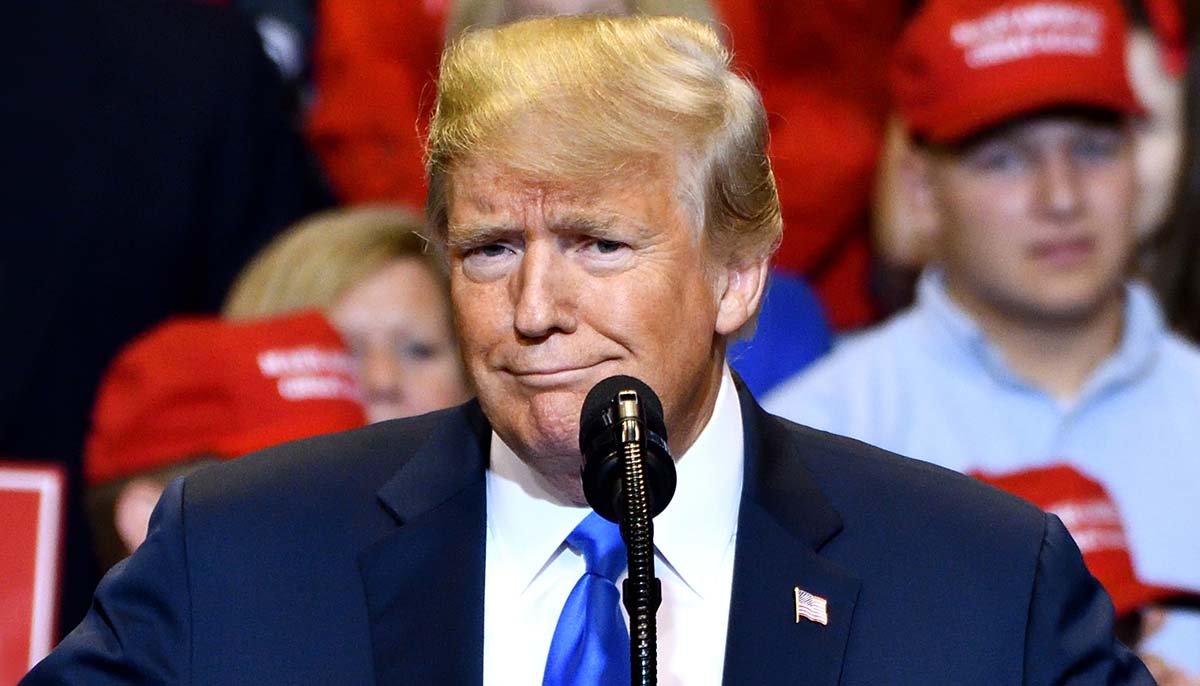Shutterstock
Twitter fact-checked tweets from President Donald Trump for the first time ever on Tuesday. Twitter called his tweets “potentially misleading.” This led Trump to attack the social media platform.

On Tuesday, Twitter labeled two of Trump’s tweets with a new label. “Potentially misleading.” The tweets falsely claimed that mail-in ballots would lead to widespread voter fraud.
A message appeared under each of the President’s tweets. They read, “Get the facts about mail-in ballots.” This was linked to a carefully curated fact-check page that debunked Trump’s assertions.
There is NO WAY (ZERO!) that Mail-In Ballots will be anything less than substantially fraudulent. Mail boxes will be robbed, ballots will be forged & even illegally printed out & fraudulently signed. The Governor of California is sending Ballots to millions of people, anyone…..
— Donald J. Trump (@realDonaldTrump) May 26, 2020
Twitter says they fact-checked Trump in an attempt to provide “context” around his remarks. However, there is concern that Twitter might not consistently apply the label.
For example, Trump has tweeted six times this month about a conspiracy theory involving MSNBC’s Joe Scarborough. He claims that Scarborough is responsible for the death of Lori Klausutis. She worked in his Florida office when he served in Congress.
Concerned parties asked Twitter to remove the claims. However, they refused.
“We are deeply sorry about the pain these statements, and the attention they are drawing, are causing the family,” said a Twitter spokesperson.
“We’ve been working to expand existing product features and policies so we can more effectively address things like this going forward and we hope to have those changes in place shortly.”
Related: Trump Rails on NY Times in ‘absolutely CRAZY’ Twitter Rampage
President Trump wasn’t happy about Twitter fact-checking him. He used the platform to accuse Twitter of election interference not long after the labels appeared on his tweets.
.@Twitter is now interfering in the 2020 Presidential Election. They are saying my statement on Mail-In Ballots, which will lead to massive corruption and fraud, is incorrect, based on fact-checking by Fake News CNN and the Amazon Washington Post….
— Donald J. Trump (@realDonaldTrump) May 26, 2020
Twitter didn’t comment on Trump’s claims. But, they did provide a statement about why they decided to fact-check him.
“These Tweets contain potentially misleading information about voting processes and have been labeled to provide additional context around mail-in ballots. This decision is in line with the approach we shared earlier this month,” said Twitter spokesperson Katie Rosborough.
However, some Twitter users believe the platform isn’t doing enough. They believe they statements were altogether false instead of “potentially misleading.”
Public fact-checking such as this might result in Twitter users being more careful with their accounts. A secure password manager isn’t the most precarious part of online security anymore; fact-checking may encourage people to be more cautious about what they post.
Related: Trump Can’t Block Twitter Critics According to Federal Judge